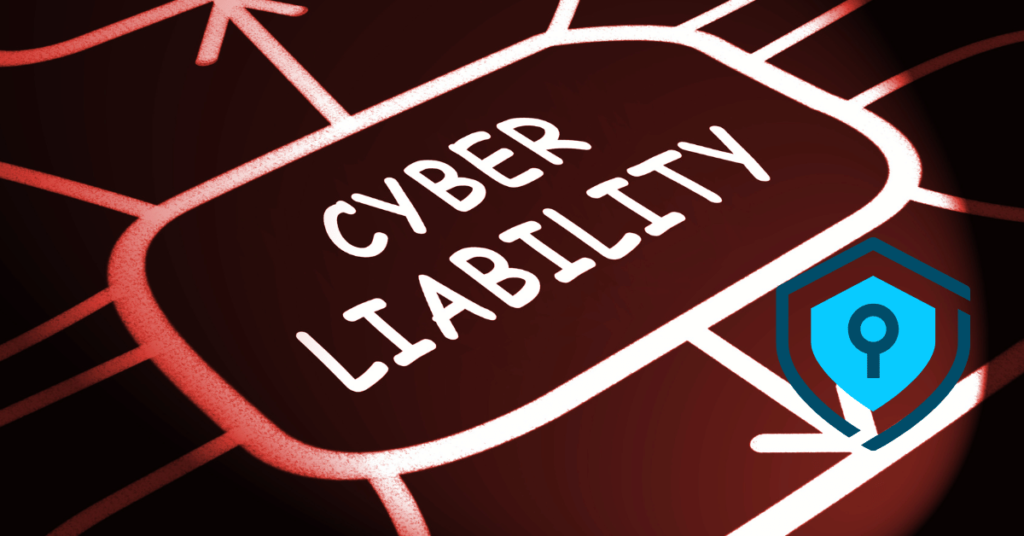As enterprises grow, so does their vulnerability to cyber threats. Data breaches, ransomware, and other cyber incidents can cause massive disruptions and financial losses, with large organizations facing increased exposure due to the scale of their operations.
Cyber insurance has become an essential part of a robust cybersecurity strategy, providing critical financial coverage in the event of a cyber incident.
In this guide, we’ll explore some of the best cyber insurance options for large enterprises, each offering comprehensive coverage and specialized support for enterprise-level needs.
Why Large Enterprises Need Cyber Insurance
Cyber threats are evolving, and large enterprises are prime targets for cybercriminals. The sheer volume of data they handle, combined with complex IT infrastructures, means that the potential damage from a cyber incident can be severe. Key reasons why large enterprises invest in cyber insurance include:
- Financial Protection: Cover the costs of data recovery, legal fees, regulatory fines, and other damages following a breach.
- Reputational Management: Support with public relations and customer communication during a crisis.
- Third-Party Liability: Protection against lawsuits resulting from compromised third-party data.
- Operational Continuity: Compensation for lost revenue and other business interruption costs.
Key Features of Cyber Insurance for Large Enterprises
When choosing a cyber insurance policy, enterprises should look for comprehensive coverage options, including:
- Data Breach Response: Assistance with breach notifications, public relations, and customer credit monitoring.
- Business Interruption and Loss of Revenue: Coverage for operational losses during downtime due to a cyber event.
- Cyber Extortion and Ransomware: Financial support in response to ransomware attacks.
- Third-Party Liability: Covers claims from affected clients or partners.
- Regulatory Compliance: Assistance with regulatory penalties and support for compliance with data privacy laws like GDPR and CCPA.
Top Cyber Insurance Providers for Large Enterprises
1. AIG CyberEdge®
- Overview: AIG’s CyberEdge provides broad coverage, including options for business interruption, data breach costs, and network security liability.
- Benefits: Offers incident response support with access to cybersecurity experts and legal counsel.
- Link: AIG CyberEdge
- Ideal For: Large organizations needing customizable policies with high limits and comprehensive risk management tools.
2. Chubb Cyber Enterprise Risk Management
- Overview: Chubb provides robust cyber coverage with an emphasis on regulatory compliance and data breach response.
- Benefits: Includes coverage for financial fraud, extortion, and digital asset protection, as well as access to Chubb’s global cyber incident response team.
- Link: Chubb Cyber Insurance
- Ideal For: Enterprises looking for regulatory compliance support and financial fraud coverage.
3. Beazley Breach Response (BBR)
- Overview: Beazley specializes in comprehensive breach response, including data breach support, ransomware protection, and regulatory coverage.
- Benefits: Beazley’s policies come with access to their in-house incident response team and coverage for legal, forensics, and credit monitoring.
- Link: Beazley Cyber Insurance
- Ideal For: Organizations that prioritize data breach response and need extensive support for compliance with privacy regulations.
4. Marsh CyberShield
- Overview: Marsh offers customizable cyber insurance options tailored to the unique risks faced by large enterprises.
- Benefits: Policyholders receive access to Marsh’s cyber risk assessment tools and guidance from cybersecurity experts.
- Link: Marsh CyberShield
- Ideal For: Enterprises looking for a highly tailored approach to cyber insurance that includes risk assessment and advisory services.
5. AXA XL Cyber Insurance
- Overview: AXA XL provides comprehensive cyber insurance coverage, including data recovery, regulatory response, and network security liability.
- Benefits: Includes access to proactive risk management tools and services designed for large organizations.
- Link: AXA XL Cyber Insurance
- Ideal For: Large enterprises needing high policy limits and proactive risk management support.
6. Travelers CyberRisk
- Overview: Travelers offers an extensive cyber insurance program that includes coverage for digital asset loss, regulatory investigations, and crisis management.
- Benefits: Travelers provides a 24/7 cyber claims hotline and access to a network of cybersecurity professionals.
- Link: Travelers Cyber Insurance
- Ideal For: Enterprises that need round-the-clock support and comprehensive cyber risk management resources.
Tips for Choosing the Right Cyber Insurance Policy for Large Enterprises
Choosing the right cyber insurance provider for your organization involves more than just comparing premiums. Consider these tips:
- Evaluate Your Risk Profile: Identify the primary cyber risks your business faces, whether they are regulatory fines, ransomware, or third-party liability.
- Determine Policy Limits: Ensure the policy’s coverage limits align with the potential financial impact of a cyber incident.
- Review Incident Response Support: Choose a provider that offers immediate access to cybersecurity experts and legal support.
- Ask About Regulatory Coverage: Confirm that the policy provides support for regulatory compliance and covers fines related to data privacy laws.
- Consider Policy Customization: Look for insurers that allow you to add or remove coverage options to fit your enterprise’s specific needs.
FAQs
What is the average cost of cyber insurance for large enterprises?
- The cost of cyber insurance for large enterprises varies significantly based on the size of the business, industry, and coverage needs. Premiums can range from $50,000 to over $500,000 annually, depending on policy limits and risk factors.
Do cyber insurance policies cover ransomware payments?
- Many cyber insurance policies cover ransomware payments, but this varies by provider and jurisdiction. Some policies may restrict coverage or require specific incident response protocols before making payments.
How can cyber insurance help with regulatory compliance?
- Many policies include coverage for regulatory fines and legal support in the event of a data breach. Additionally, some insurers provide guidance on complying with data privacy laws, like GDPR and CCPA, helping businesses manage regulatory risks.
Is it necessary to have third-party coverage?
- Yes, third-party coverage is essential for large enterprises that handle sensitive client or partner data. This coverage protects against lawsuits and claims from affected third parties following a breach.
Can cyber insurance prevent cyber incidents?
- While cyber insurance itself cannot prevent incidents, many providers offer proactive cybersecurity resources, such as risk assessments, employee training, and access to cybersecurity tools, which can help reduce the likelihood of an incident.
Conclusion
For large enterprises, having a comprehensive cyber insurance policy is vital for financial and operational security. Providers like AIG, Chubb, and Beazley offer a range of coverage options tailored to enterprise needs, including support for regulatory compliance, ransomware protection, and crisis management. By evaluating your enterprise’s specific risks and selecting a provider that aligns with your cybersecurity strategy, you can ensure robust protection against cyber threats.
So that was all about this article. Explore options with trusted providers like AIG, Chubb, and Beazley to safeguard your organization against the financial and reputational impact of cyber incidents.




